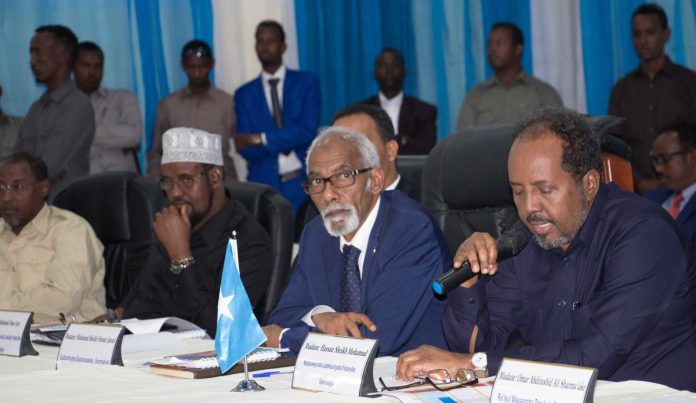Facebook Twitter (X) Instagram Somali Magazine - People's Magazine
As the world gears up for the upcoming Somali elections, the nation’s political landscape remains fraught with tension and uncertainty. Negotiations between the federal government and regional states are ongoing, aiming to ensure a smooth and transparent electoral process. Despite these efforts, significant challenges persist, particularly concerning the representation of various clans and regions, which has historically been a contentious issue in Somali politics.
Negotiations for Electoral Process
In recent months, representatives from the federal government and regional states have been engaged in intense negotiations to agree on the framework for the elections. These discussions are critical to addressing the complex political dynamics that have often led to conflict and instability in Somalia. Key topics include the allocation of parliamentary seats, the role of traditional elders in the electoral process, and mechanisms to ensure fair representation of all clans and regions.
Clans and Regional Representation in the Upcoming Somali elections
The representation of different clans and regions in the electoral process remains a particularly thorny issue. Somalia’s political system, based on a power-sharing model known as the “4.5 formula,” allocates parliamentary seats among the major clans and minority groups. While this system aims to promote inclusivity, it has also been criticized for entrenching clan divisions and marginalizing smaller groups. Efforts to reform the electoral system have faced resistance from various factions, complicating the path to consensus.
International Community’s Role in the Upcoming Somali elections
The international community is closely monitoring the situation in Somalia, urging all parties to engage in dialogue and avoid violence. The United Nations, African Union, and other international partners have emphasized the importance of a peaceful and inclusive electoral process. In a recent statement, the UN Special Representative for Somalia, James Swan, highlighted the need for “constructive dialogue and compromise” to overcome the current impasse.
Tensions and Risks about the upcoming Somali elections
Despite ongoing negotiations, tensions remain high, with sporadic violence and political rivalries threatening to derail the electoral process. Various armed groups and political factions have vested interests in the outcome of the elections, raising concerns about potential disruptions and violence. The security situation in many parts of the country also poses significant challenges to conducting free and fair elections.
Looking Ahead
As the election date approaches, the focus remains on ensuring that the process is transparent, inclusive, and credible. The outcome of these elections will be crucial in determining Somalia’s political trajectory and stability in the coming years. The international community’s support and the commitment of Somali leaders to peaceful negotiations will be vital in navigating this critical period.

